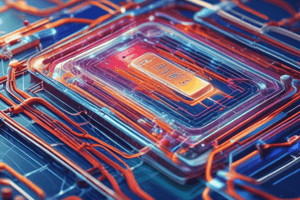Podcast
Questions and Answers
What is the main function of an electrode?
What is the main function of an electrode?
- Break into ions
- Carry electric current into non-metals (correct)
- Facilitate electroplating
- Produce electrolytes
Which process uses electrolytes?
Which process uses electrolytes?
- Electroplating (correct)
- Photosynthesis
- Distillation
- Respiration
How are anions and cations different?
How are anions and cations different?
- Anions carry electric current, cations do not
- Anions are positively charged, cations are negatively charged
- Anions are negatively charged ions, cations are positively charged ions (correct)
- Anions are used in electroplating, cations are not
What is the charge of the cathode?
What is the charge of the cathode?
In the context of electrodes, what does anode refer to?
In the context of electrodes, what does anode refer to?
Study Notes
Electrodes and Electrolytes
- An electrode is a conductor of electricity that can carry electric current into non-metals and other poor conductors of electricity.
- A solution that breaks into its ions on passing electricity through it is called an electrolyte.
- Electrolytes are used in the process of electroplating.
Types of Electrodes
- The positively charged electrode is called an anode.
- The negatively charged electrode is called a cathode.
Ions
- An anion is a negatively charged ion.
- A cation is a positively charged ion.
Studying That Suits You
Use AI to generate personalized quizzes and flashcards to suit your learning preferences.
Description
Test your knowledge on electrodes, electrolytes, anodes, cathodes, anions, and cations. Learn about their roles in conducting electricity and the process of electroplating.




